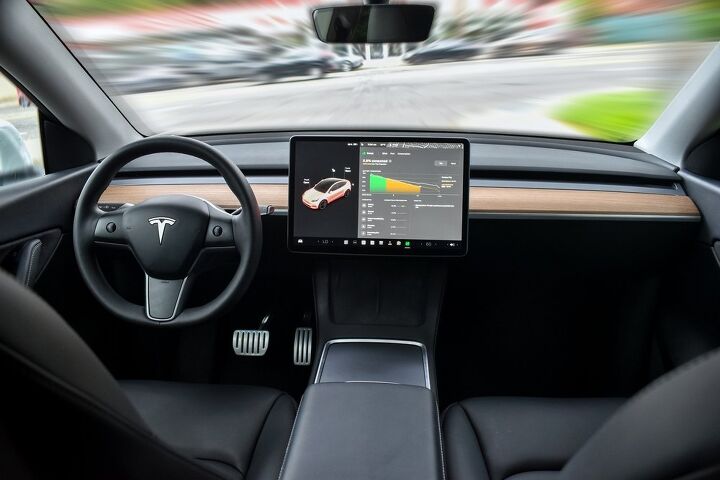How the World Views Autonomous Vehicles
In a recent global survey conducted by Maison Law, a personal injury law firm based in Fresno, California, the levels of trust and comfort with autonomous vehicles were explored across different countries. The survey aimed to understand the global perceptions and readiness for sharing roads with these technologically advanced vehicles.
Varied Trust Levels Across Countries
The study revealed a diverse range of trust levels among the populations of various countries. Notably, individuals from China, Russia, and the United Arab Emirates (UAE) exhibited the highest trust in autonomous vehicles. The survey showed that more than 80 percent of respondents from these countries are comfortable with the idea of sharing the roads with autonomous vehicles.
Conversely, the United States, Japan, and South Korea demonstrated lower levels of trust. In these countries, approximately half of the survey participants expressed discomfort with the presence of autonomous vehicles on the roads.
Country-Specific Findings
- United Arab Emirates – 88 percent
- United States – 57 percent
- Germany – 71 percent
- United Kingdom – 74 percent
- Israel – 66 percent
- China – 94 percent
- Canada – 60 percent
- Australia – 63 percent
- Japan – 52 percent
- Russia – 89 percent
- South Korea – 52 percent
Implications and Future Directions
The survey's findings suggest a broad spectrum of public trust in autonomous vehicles, influenced by geographical and possibly cultural factors. These variations indicate the need for tailored approaches in the introduction and integration of autonomous vehicles within different societies.
Understanding these perceptions is crucial for policymakers, automotive manufacturers, and technology companies as they navigate the complexities of introducing autonomous technologies to the public. Building trust through transparency, safety assurances, and public education will be key to fostering a harmonious coexistence between autonomous vehicles and human drivers.
This article was co-written using AI and was then heavily edited and optimized by our editorial team.
More by TTAC Staff
Latest Car Reviews
Read moreLatest Product Reviews
Read moreRecent Comments
- Ajla The market for sedans is weaker than it once was but I think some of you are way overstating the situation and I disagree that the sales numbers show sedans are some niche thing that full line manufacturers should ignore. There are still a sizeable amount of sales. This isn't sports car volume. So far this year the Camry and Civic are selling in the top 10, with the Corolla in 11 and the Accord, Sentra, and Model 3 in the top 20. And sedan volume is off it's nadir from a few years ago with many showing decent growth over the last two years, growth that is outpacing utilities. Cancelling all sedans now seems more of an error than back when Ford did it.
- Duties The U.S . would have enough energy to satisfy our needs and export energy if JoeBama hadn’t singlehandedly shut down U.S. energy exploration and production. Furthermore, at current rates of consumption, the U.S. has over two centuries of crude oil, https://justthenews.com/politics-policy/energy/exclusive-current-rates-consumption-us-has-more-two-centuries-oil-report.Imagine we lived in a world where all cars were EV's. And then along comes a new invention: the Internal Combustion Engine.Think how well they would sell. A vehicle HALF the weight, HALF the price that would cause only a quarter of the damage to the road. A vehicle that could be refueled in 1/10th the time, with a range of 4 times the distance in all weather conditions. One that does not rely on the environmentally damaging use of non-renewable rare earth elements to power it, and uses far less steel and other materials. A vehicle that could carry and tow far heavier loads. And is less likely to explode in your garage in the middle of the night and burn down your house with you in it. And ran on an energy source that is readily extracted with hundreds of years known supply.Just think how excited people would be for such technology. It would sell like hot cakes, with no tax credits! Whaddaya think? I'd buy one.
- 3SpeedAutomatic I just road in a rental Malibu this past week. Interior was a bit plasticity, but, well built.Only issue was how “low” the seat was in relation to the ground. I had to crawl “down” into the seat. Also, windscreen was at 65 degree angle which invited multiple reflections. Just to hack off the EPA, how about a boxy design like Hyundai is doing with some of its SUVs. 🚙 Raise the seat one or two inches and raise the roof line accordingly. Would be a hit with the Uber and Lyft crowd as well as some taxi service.🚗 🚗🚗
- Dartdude Having the queen of nothing as the head of Dodge is a recipe for disaster. She hasn't done anything with Chrysler for 4 years, May as well fold up Chrysler and Dodge.
- Pau65792686 I think there is a need for more sedans. Some people would rather drive a car over SUV’s or CUV’s. If Honda and Toyota can do it why not American brands. We need more affordable sedans.


































Comments
Join the conversation